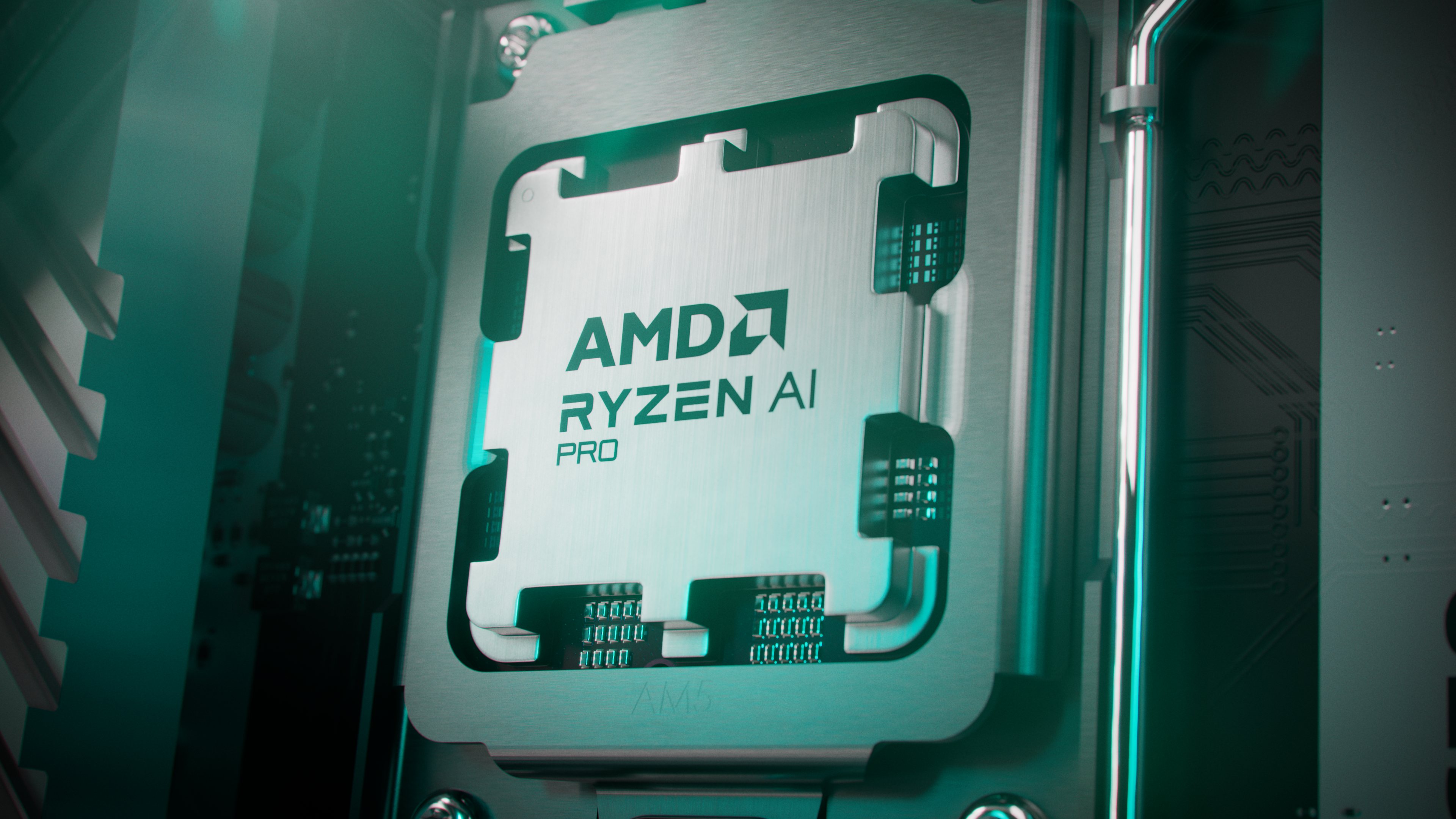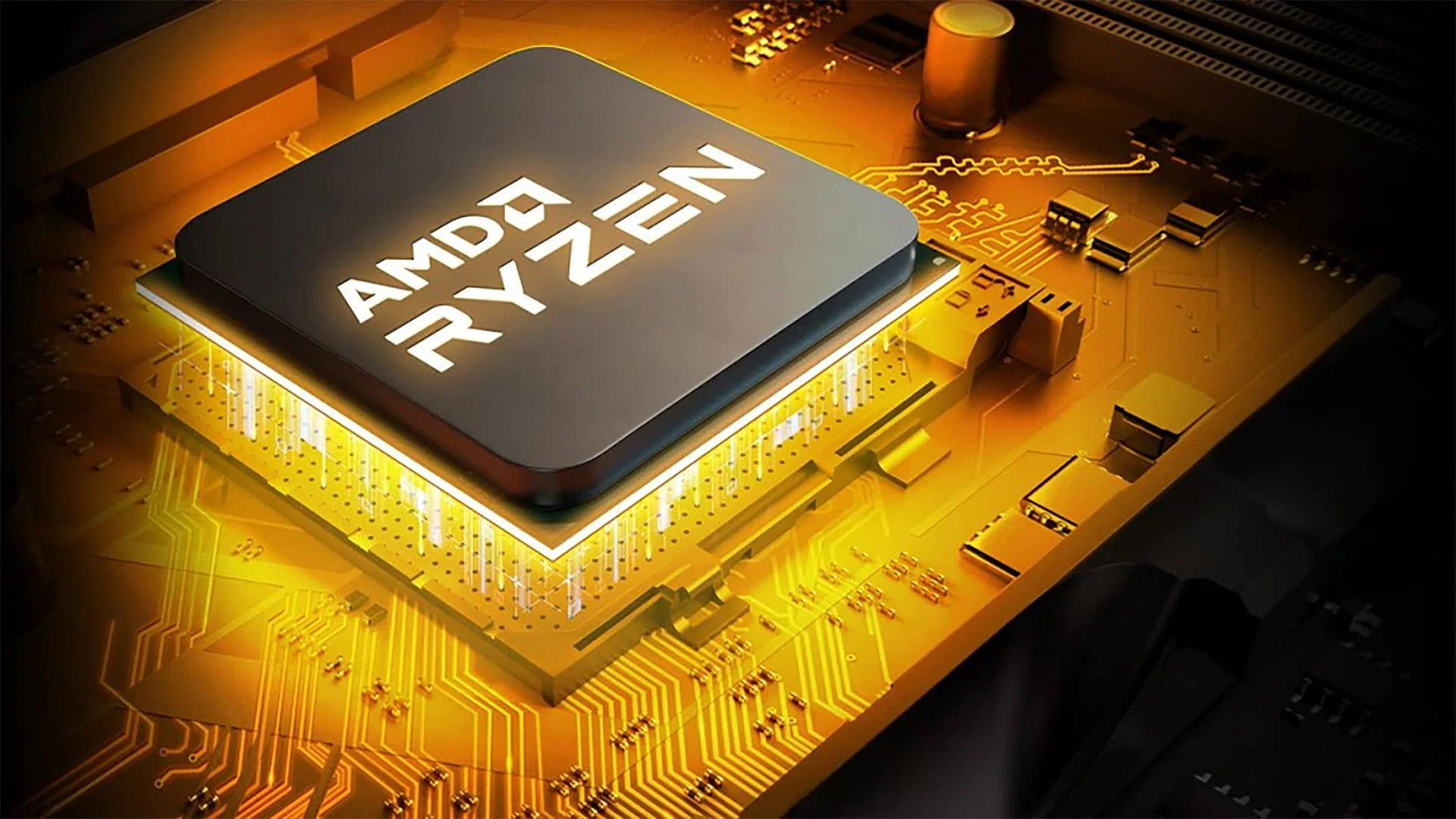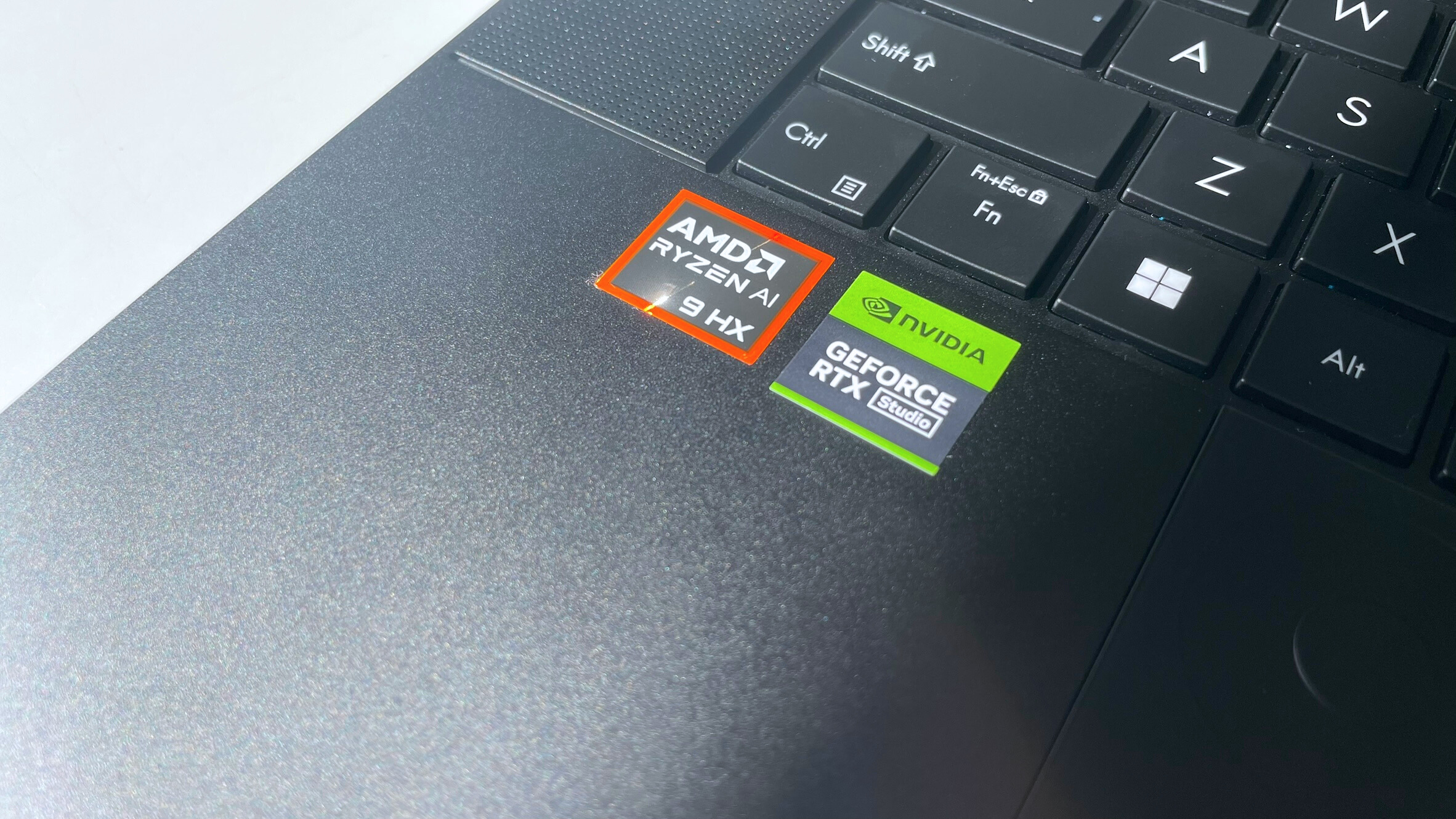Picking the AMD Ryzen 7 over the Ryzen 9 could save you money on your next gaming laptop
It's all about that core optimization

The most powerful CPU isn't always going to be the best choice.
While AMD's Ryzen 9 series processors have double the core and thread counts of the Ryzen 7, hardware benchmark enthusiasts will notice the Ryzen 7 often outperforms its pricier counterpart.
Despite featuring the same base architecture, like Zen4 or Zen5, not all AMD CPUs have the same structure in terms of cache size and clock frequency, which can have some major advantages and disadvantages when it comes to gaming. There are also issues with core optimization in games, where having higher core counts can work against you in terms of raw gaming performance.
Opting for the Ryzen 7 build in your next laptop could save you a decent bit of money, even on the best gaming laptops.
Structural differences in the Zen5 Architecture

AMD's 9th generation Ryzen desktop chips and 3rd generation Ryzen AI laptop chips utilize the Zen 5 architecture. But not all Zen 5 chips are created equal. We haven't seen the new Ryzen 7 consumer-level chips just yet, as the first Ryzen 7 AI 300 processors to hit the market have been Pro-level workstation processors. We expect AMD to present more information about what to expect from the upcoming "Krackan Point" and "Fire Range" mobile CPUs at CES 2025. Gamers will be most interested in the "Fire Range" series chips, as those will be the more powerful variant, with the "Fire Range" Ryzen 9 chip expected to feature 16 CPU cores.
So far, AMD's 9th generation gaming desktop chips have given us the Ryzen 7 9800X3D, a popular chip that can't stay on shelves. But, we have some details on the upcoming Ryzen 9 9950x3D desktop variant expected in January 2025.
To get an idea of the overall structural differences between the Ryzen 7 and Ryzen 9 chips, we've put together a handy reference chart for both the desktop and laptop CPUs:
Sign up to receive The Snapshot, a free special dispatch from Laptop Mag, in your inbox.
| Row 0 - Cell 0 | Cores | Threads | L3 Cache | 3D V-Cache | Base clock | Boost clock |
| Ryzen 7 9800x3D | 8 CPU cores | 16 threads | 32MB | 64MB | 4.7GHz | 5.2GHz |
| Ryzen 9 9950x3D | 16 CPU cores | 32 threads | 64MB | 64MB | TBD | TBD |
| Ryzen AI 9 HX 370 (Strix Point) | 12 CPU cores | 24 threads | 24MB | None | 2.0GHz | 5.1GHz |
| Ryzen AI 7 (Fire Range) | 8 CPU cores | 16 threads | TBD | TBD | TBD | TBD |
| Ryzen AI 9 (Fire Range) | 16 CPU cores | 32 threads | TBD | TBD | TBD | TBD |
Because the mobile side has fewer details so far, we'll focus a bit more on the desktop side in terms of differences in the Zen5 structure of the Ryzen 7 and Ryzen 9 9th generation X3D chipsets.
Both chips feature the same large 3D V-Cache, allowing better optimization for gaming. While we don't have the base and boost clock speeds for the Ryzen 9 9950X3D, if it's similar to the Ryzen 9 9950 chip, it would have a 4.3GHz base clock with a 5.7GHz boost clock speed. This would be similar to the Zen 4 Ryzen 9 7950X3D chip, which features a 4.2GHz base and a 5.7GHz boost clock.
While the Ryzen 9 does have a higher boost clock speed, a desktop can't always run at its highest clock speeds, even when you overclock the system. You do have thermal and power concerns to worry about. So, the higher base clock speed of the Ryzen 7 9800X3D could get you better, more reliable gaming performance without worrying about melting your silicon.
So, even within the Zen5 architecture, there is plenty of variation in each chip that could impact your gaming performance.
Core optimization in gaming

As you can see in the chart above, the Ryzen 9 9950X3D features more than double the cores and threads of the Ryzen 7 9800X3D. The expected "Fire Range" Ryzen 9 chipset also has double the core and thread count of its Ryzen 7 counterpart.
But having more cores doesn't always equal more gaming power.
While higher core counts and thread counts easily lead to higher multi-thread performance, multicore performance isn't everything when it comes to gaming. After all, the 32-core Threadripper isn't a gaming-class CPU.
Some games will get a performance boost from CPUs offering many cores. Cities: Skylines 2 is one of the few games where having more than 8 cores and 16 threads is crucial; the city management simulator demands a ton of CPU power. Other games like Call of Duty or Minecraft can be very demanding on a single CPU core.
However, Nvidia's Jon Kennedy reported earlier this year that most modern PC games are "designed around an eight-core console with an assumption that their software threading system 'just works' on all PCs," but there are advantages to cutting down the number of CPU threads for better gaming performance. "Many CPU-bound games actually degrade in performance when the core count increases beyond a certain point, so the benefits of the extra threading parallelism are outweighed by the overhead."
It's all about the price to performance ratio
This isn't to say you should never game on a Ryzen 9 CPU. There are advantages to having a higher core and thread count, particularly if you'll use your PC for more than just gaming. If it's also a creator machine for video and photo editing, having a more powerful Ryzen 9 processor may be worth the increased price tag.
But if you're looking for the best gaming performance, the Ryzen 7 is often the better-optimized CPU for most games. And it's also typically a few hundred dollars cheaper than the comparable Ryzen 9 variant. So, if you've been waiting on the "Granite Ridge" Ryzen 9 9950X3D to upgrade your PC, it might be worth picking up a Ryzen 7 9800X3D instead. Assuming, of course, you can find one in stock.
For laptop gamers, once we start seeing systems with the "Fire Range" Ryzen 7 and Ryzen 9 chips, we recommend opting for the more cost-effective Ryzen 7 when making your spec list.
More from Laptop Mag
- Lenovo's Legion Go 2 may adopt a killer Steam Deck and Nintendo Switch feature
- Can the ROG Ally X's AMD Fluid Motion Frames 2 update actually double your framerate? We tested it to see!
- I tried AMD's new GPU tech and it turned my laptop into a graphics beast

A former lab gremlin for Tom's Guide, Laptop Mag, Tom's Hardware, and TechRadar; Madeline has escaped the labs to join Laptop Mag as a Staff Writer. With over a decade of experience writing about tech and gaming, she may actually know a thing or two. Sometimes. When she isn't writing about the latest laptops and AI software, Madeline likes to throw herself into the ocean as a PADI scuba diving instructor and underwater photography enthusiast.
